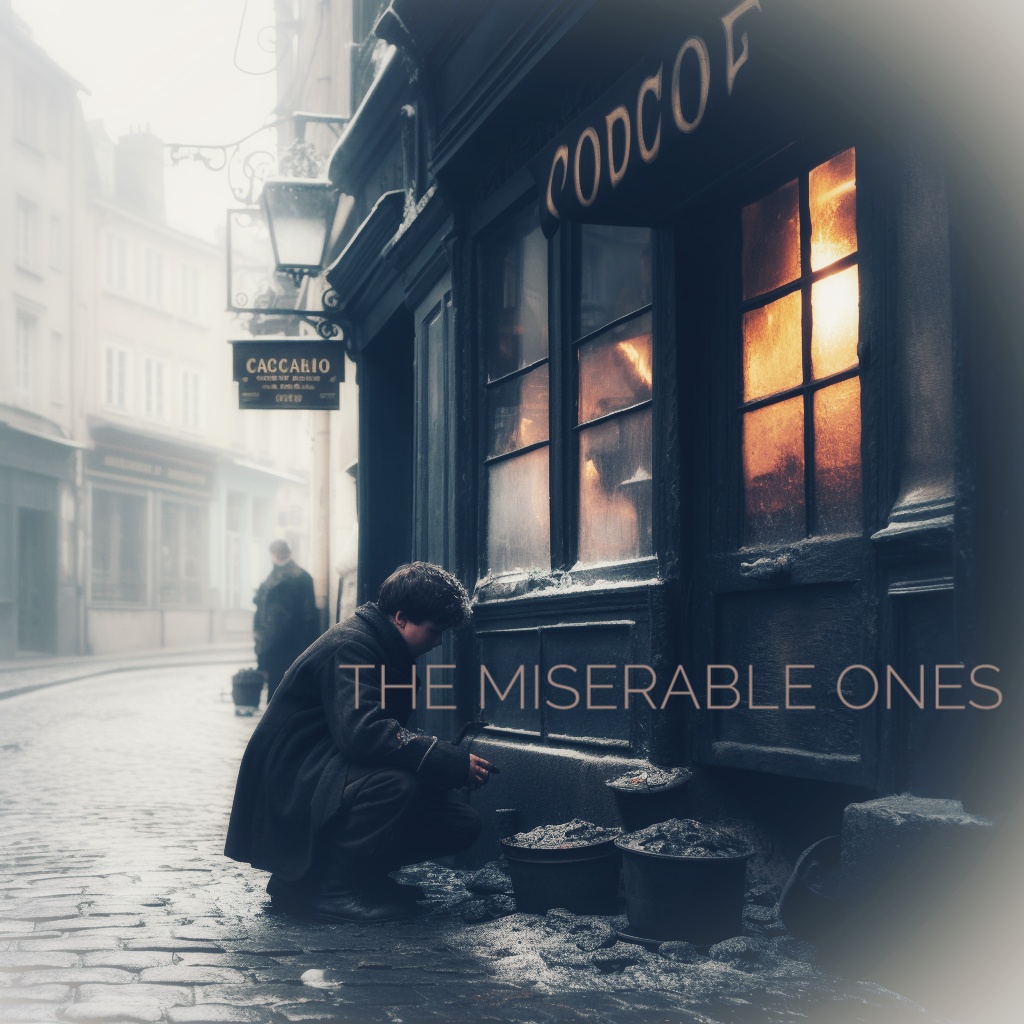
The Miserable Ones
The Miserable Ones
Intro
Sometimes a simple prompt can pull a question from the mind. Coffee shops. How old are they? I went on a bit of search and the minute I read about the Cafe Procope I smiled. Victor Hugo went there?! Amazing! Yes, Yes! I can write to this prompt.
This is the amazing thing about prompts. I had no clue this story existed in my mind until I read it:
The Reedsy Prompt was ‘Start your story in a coffee shop without using obvious words to describe it (e.g. barista, coffee cup.)

“L’habituel?” The usual?
“Mais bien sur.” But of course.
“Tout de suite.” Right away.
Victor settles himself and waits.
On this side of the window pane, Voltaire and Diderot still hum. It is as if they pass through the century without moving a muscle. The dead leave thought. Here it still whispers from the walls.
A tinkling of glass is heard from the far room. Laughter from the room beside that one. Each compartment within the building had a history. La Fontaine has coughed in this one. Napoleon Bonaparte in that one. Voices of both are etched into the wallpaper and the gold guild mirrors still keep their secrets. The windows blink her eyes at their ideals. On the one side, they are warm, on the other, soggy. On the one side, dry, on the other side noisy. Placement, position, perspective. Rain taps against the glass.
Victor inspects his fingers as he waits. Elongated bones bruised in ink. His right index finger and middle finger are dented where the steel squeezed out words. He rubs them absentmindedly. The dents remain. Scars of his work etched in his skin. Ink tattoo its name there. The stain of his thoughts layered and trapped. The ink would never come out. He blinks, raises his eyes, and gazes out the window.
****
One bruise across his cheek. Three scratches below that. His bones protruded; on his face, on his chest, on his back. Muscles that were to make him strong hadn’t been fed this day or the day before. The promise of bread is a wish. His stomach is too hungry to growl. He lifts a bushel of coal from the cart, it weighs more than him. His name is Henri. His age is ten. He had a father once and a mother too. Today he has coal and a whip held by the driver. Both are delivered.
Women dressed in silk, sitting in carriages pulled by stallions take no notice of him, and he no notice of them. He is working, they are not. They have bread, he has none. They live on the same earth, in the same city, on the same ground. They breathe the same air and feel the same rain and the coal touched by one warms the other.
A monk passes on soft feet under a cloaked hood, far enough from Sainte-Chapelle that the eyes of God don’t follow. He would raise his brow to the boy if he had noticed him, but boys, like flies, are only visible when they need swatting. A bell vibrates the air. God announces ten o’clock. The stallions pull the women away and the monk rounds the corner. Only rain keeps Henri company on the cobblestone. His teeth chatter. They’ve been chattering for three years.
He moves like his body hurts. The bones that have existed for 3650 days are bent where they should not be bent. Under the bushel, Henri slips, and the coal escapes his grasp and tumbles across the stones. Pieces roll and bounce and slide and black dust puffs behind. Raindrops mix the powder creating ink the color of anthracite. A puddle of it here, a vein of it there. Henri signs his name on the cobbles with his feet. He bends to pick up pieces and a whip comes down across his back. He flinches and raises his head before the second lash claws. He uses his arm to steady himself against the building. The window at 13 Rue de l’Ancienne Comédie blinks. Henri is staring through its glass as the whip cracks number two.
****
Pierre has returned to the table with a delicate cup sitting on a delicate saucer. Indigo and emerald in equal parts edged in gold. The portrait of a small child running between trees is painted into the center of the saucer, a similar portrait on the cup. The porcelain held boiled beans with milk and was placed on the linen-covered table just as Victor and Henri’s eyes met through the window.
One observes an old man with clear, soft eyes. White whiskers cover the cheeks, and white hair covers the head.
The other observes a child with eyes blackened in coal dust and hunger. They hide under a shock of coarse hair. The damp clothes him, pulling in his bones and holding them stiff. Ice doesn’t bend. The window vibrates beside his teeth.
The sound of a whip cracks and snaps his eyelids awake in time to see the boy wince within his shivers. The whip has no power to stop the chatter. The boy’s eyes shift from black to hate.
A thousand years of philosophers dance on the tip of one thousand pens. Vacuous. The boy bleeds into their ink.
Victor is silent but his thought is not. Phrases chatter through his mind faster than the boy’s teeth.
“it is in suffering that humans become angels…”
“All crimes of the man begin in the vagabondage of the child…”
“You ask me what forces me to speak? a strange thing; my conscience…”
“bad to good, bad to good..”
What is it that inspires a writer to write? To simply tell a story? Perhaps to tell the truth? Maybe yet, a whisper from God? “You saw it, now tell it! Speak what you see so others may see it too!”
The boy disappears before his liquid does. The thoughts do not, and by the time he had finished cup two, the first page had been formed and memorized.
“Not everyone will read it, but it will be written for everyone.” He thinks.
Victor stands, places a couple of Sioux on the table, pulls on his jacket, and buttons it. With his head down in continued thought, walks to the door, opens it, and exits the Café Procope.
On the cobbles in front of the window, Victor sees a drop of blood and, beside it, small footprints stamped in coal dust. He sighed, bent over, and with the tip of his index finger, he pushed the dust into words.
Les Misérables

